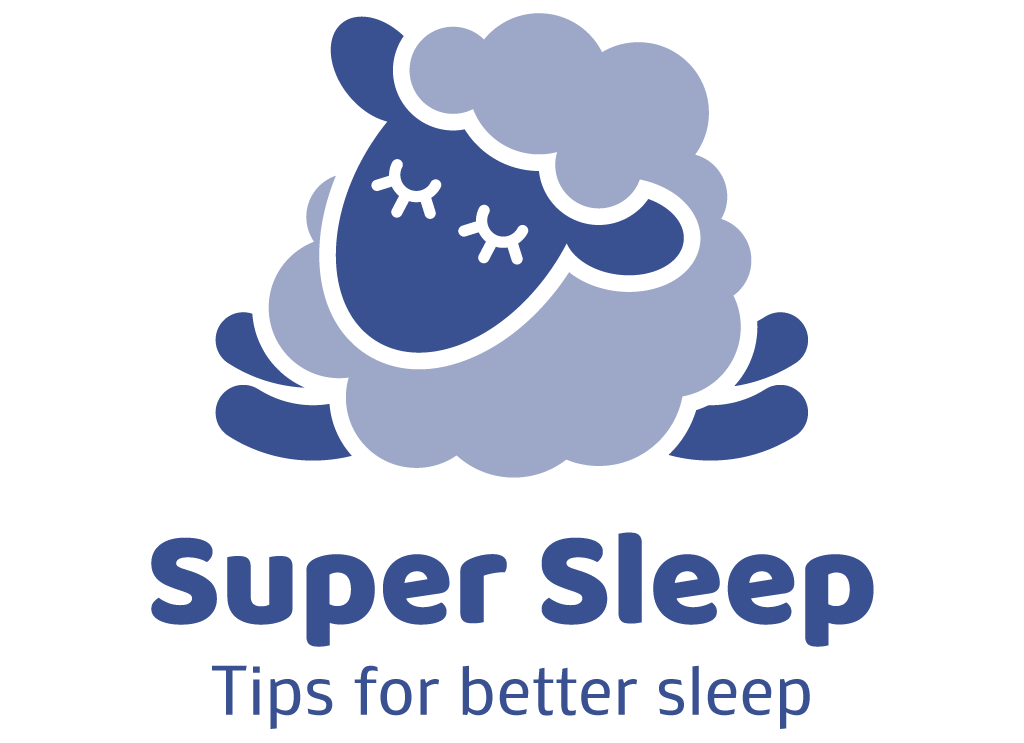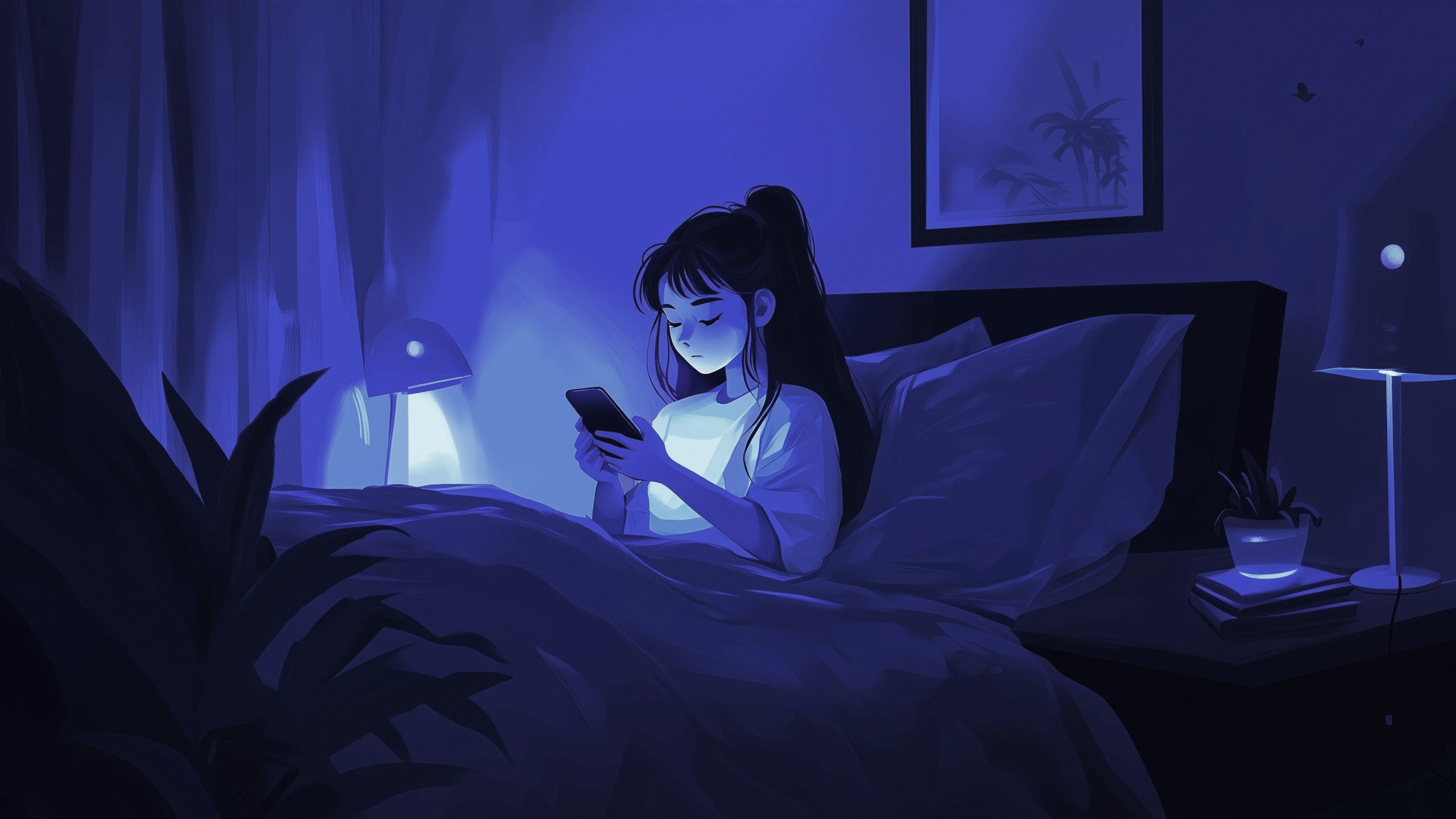In our modern society, we are constantly exposed to the light emitted by our electronic devices: smartphones, computers, tablets, televisions, and even certain types of LED lighting. While this light is convenient for our daily activities, it comes with consequences for our health, particularly when it comes to sleep. More specifically, it is the blue light emitted by these screens that disrupts our sleep cycle. This article explores the effects of blue light on sleep and explains how to limit its impact to enjoy more restful nights.
What Is Blue Light?
Blue light is a component of the visible light spectrum, with a short wavelength and high energy. While blue light is naturally present in daylight, where it helps make us alert and regulate our biological clock (our circadian rhythm), excessive exposure to this artificial light, especially in the evening, can disrupt our sleep habits.
How Does Blue Light Affect Sleep?
Blue light primarily affects the production of melatonin, a hormone that regulates sleep. When darkness falls, melatonin production naturally increases, signaling to our body that it’s time to rest. However, exposure to blue light, particularly in the evening, delays melatonin production, tricking our brain into thinking it’s still daytime. This delay makes it harder to fall asleep and decreases the quality of our sleep.
1. Delayed Sleep Onset
One of the immediate effects of exposure to blue light is delayed sleep onset. When you use electronic devices in the evening—whether for work, watching shows, or browsing social media—you disrupt your internal clock. Under the influence of this light, your brain struggles to understand that it’s time to switch to rest mode. As a result, you take longer to fall asleep, and your nights are shorter.
Tip:
To avoid this delay, try turning off your electronic devices at least one hour before going to bed, and opt for more relaxing activities like reading a (non-digital) book or meditating.
2. Reduced Sleep Quality
Even if you manage to fall asleep after using screens, the quality of your sleep may suffer. By disrupting melatonin production and the circadian rhythm, blue light can reduce the time spent in deep sleep and REM sleep, both of which are essential for physical and mental recovery. These stages of sleep allow the body to restore energy, consolidate memory, and regenerate muscle tissues. Sleep disturbed by blue light is often less restorative, which can lead to frequent awakenings and a feeling of fatigue upon waking.
Tip:
If you’re used to using electronic devices in the evening, consider enabling a blue light filter on your screens (available on most phones and computers), or use specially designed glasses to block blue light.
3. Disruption of the Circadian Rhythm
Our circadian rhythm is the internal clock that controls our sleep-wake cycles. Excessive exposure to blue light disrupts this rhythm by delaying the time when your body naturally prepares for sleep. This can lead to a misalignment between your internal clock and your daily routine, resulting in long-term sleep disorders, such as insomnia or sleep-wake cycle disturbances.
Tip:
Reduce blue light exposure not only in the evening but also during the day if possible by limiting long periods of screen use. Take regular breaks to expose your eyes to natural light.
4. Impact on Mood and Daily Performance
Poor sleep quality due to blue light exposure doesn’t just make for difficult nights—it also affects your mood, concentration, and daily performance. A lack of restorative sleep is associated with decreased attention, increased irritability, and a higher risk of daytime fatigue. Over time, this can lead to decreased productivity, as well as increased vulnerability to stress and anxiety.
Tip:
In addition to limiting screen use before bed, try to adopt a relaxing bedtime routine. Activities such as reading, meditating, or listening to calming music can help your body and mind prepare for sleep.
How to Reduce the Impact of Blue Light on Your Sleep
While blue light is an integral part of modern life, it is possible to limit its negative effects on sleep by making a few adjustments to your daily habits. Here are some simple strategies to protect your sleep:
- Use blue light filters: Many devices today offer “night mode” or “comfort view” options that reduce blue light emission. Turn these on in the late afternoon or evening to minimize disruptions to your sleep.
- Wear blue light blocking glasses: If you can’t avoid using screens in the evening, wear glasses specifically designed to block blue light. They are becoming increasingly popular and are easy to find.
- Reduce screen time in the evening: Try to replace screen use with other more calming activities like reading, drawing, or practicing meditation. This will allow your brain to naturally prepare for sleep.
- Opt for dim lighting: In your home, switch to softer, dimmer lights in the evening, such as warm-toned lamps. This can help your body understand that it’s time to wind down.
- Expose yourself to natural light in the morning: To regulate your biological clock, expose yourself to natural light as soon as you wake up. This will help synchronize your circadian rhythm and promote better sleep at night.
Blue Light, a Silent Sleep Disruptor
Though invisible to the naked eye, blue light has a significant impact on our sleep. By disrupting melatonin production and delaying our internal clock, it can lead to delayed sleep onset, reduced sleep quality, and disruptions to the sleep-wake cycle. Fortunately, with simple actions like reducing screen time in the evening, using blue light filters, and opting for softer lighting, you can limit the effects of blue light on your sleep and enjoy more restful nights.
By adopting these strategies, you’ll not only protect the quality of your nights but also improve your overall physical and mental well-being.

